Which is better for people with high blood pressure, green tea or black tea?
Green tea, which is cold in nature, is suitable for drinking in summer; black tea, which is warm in nature, is suitable for drinking in winter. Green tea and black tea, which is more suitable for people with high blood pressure to drink? On this issue, there is no conclusion, most of the tea drinking friends also hold the view that: after all, just a cup of tea, on our blood pressure may have little effect. So is there really a difference in their effect on blood pressure?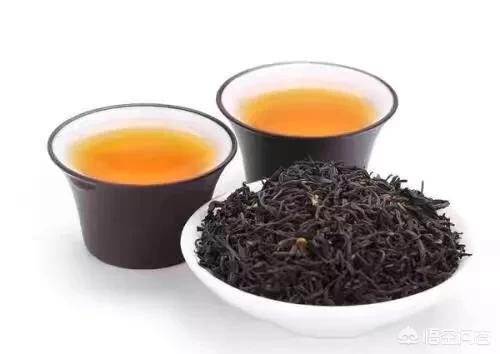
Green tea, unfermented tea, in the process of processing, green tea tea polyphenols retained about 90%; black tea, fermented tea, in the process of processing, black tea tea tea polyphenols reduced by about 90%. The difference between their respective main ingredients is the amount of tea polyphenol content. Current evidence shows that tea polyphenols into the body, can produce similar to the role of angiotensin-converting enzyme inhibitors, inhibit angiotensin-converting enzyme, vasodilatation, reduce blood pressure, which is similar to the antihypertensive mechanism of the class of antihypertensive drugs and Prilosec. Therefore, the gap between green tea and black tea tea polyphenol content may lead to a little difference in their effects on blood pressure:The former tea polyphenol content is high, may slightly lower blood pressure or stabilize blood pressure; the latter tea polyphenol content is low, may stabilize blood pressure does not rise. However, the authenticity of their impact on blood pressure is yet to be proved, after all, black tea and green tea contain other ingredients, may also have a certain impact on blood pressure, after drinking the blood pressure will have what kind of impact may also vary from person to person. Here, Medical Senlution does not make any conclusion or recommendation.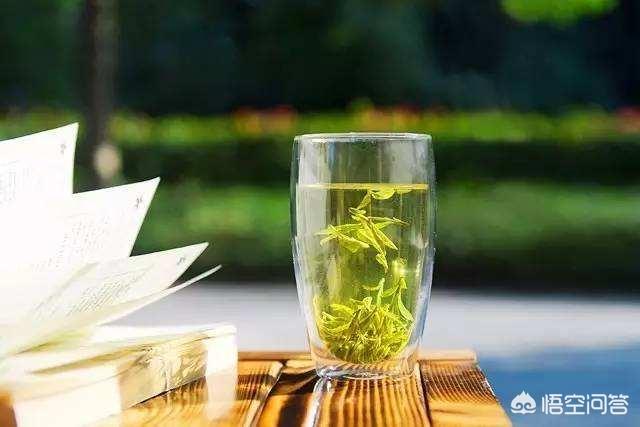
It should be noted that people with high blood pressure when drinking tea, try to light tea, less strong tea. Because tea is rich in caffeine, which can excite the central nervous system, bringing the benefit of refreshing, but for people with high blood pressure, excessive intake of caffeine can raise blood pressure, which is not conducive to the control of blood pressure. Compared to light tea, strong tea has a higher caffeine content and is not suitable for people with high blood pressure. However, many people have a preference for strong tea, which may be related to the refreshing effect of strong tea. However, we do not recommend strong tea because it not only affects blood pressure, but also affects our digestive system, especially for patients with gastroesophageal reflux disease (GERD) and peptic ulcers, which may aggravate their condition.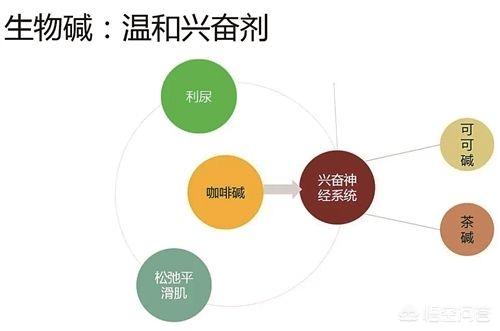
Thanks for reading!
Green tea and black tea, which is more suitable for people with high blood pressure to drink? This is a topic of concern for many people with high blood pressure, and there are always some friends who hope to drink tea to lower their blood pressure. So, is drinking tea really good for people with high blood pressure? Which tea is better? Today, Dr. Zhang will explain to you.
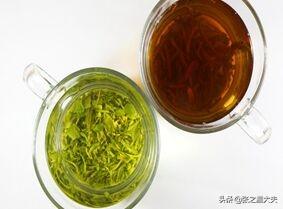
In the matter of drinking tea to lower blood pressure, science writers should avoid two wrong tendencies: the first is to think that drinking tea can lower blood pressure, so the original antihypertensive drugs are stopped. This practice is very undesirable. And the other wrong approach is to think that drinking tea for improving blood pressure has no benefit at all, to give a complete negative. So, how to correctly recognize the relationship between drinking tea and high blood pressure? Black tea, green tea, which kind of tea is more suitable for hypertensive patients to drink?
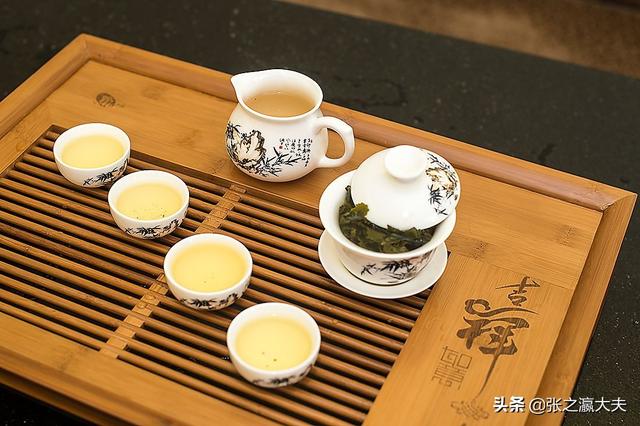
The first thing that must be made clear to you is that drinking tea does help with blood pressure control and can be considered a healthy behavior. This all depends on the tea has some substances that help the human body to discharge sodium, so drinking tea this behavior helps the human body to discharge sodium, that is to say, eliminating the excess salt into the body, which is helpful to the control of blood pressure. However, drinking tea should never be a substitute for regular antihypertensive treatment, and it would be a big mistake to drink tea instead of regular antihypertensive medication.
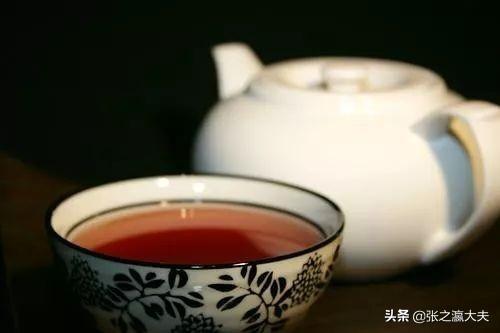
Secondly, since the act of drinking tea helps the body eliminate sodium, which tea is better? Black tea or green tea? Having said that, I would like to answer you with the research of academician Gu Dongfeng, the most authoritative cardiovascular hospital in our country.The research results of academician Gu Dongfeng's team in 2019 showed that regular tea drinking helps cardiovascular disease health, so tea drinking is considered a healthy behavior. This study also points out that those men who have a long-term tea drinking habit drink, especially those who drink green tea, cardiovascular health benefits are greater. The study after the analysis of more than 100,000 subjects found that, compared with people who do not drink tea, regular tea drinkers cardiovascular disease incidence, the total risk of death were reduced by about 20%, 15%. And long-term long-term adherence to drink green tea men, the incidence of cardiovascular disease reduction is more obvious. This study did not find that regular black tea drinkers have this protective effect, which may be related to the green tea has more active substances. So, if you let Dr. Zhang said that hypertensive patients can be based on the results of this study, moderate consumption of green tea may be better.
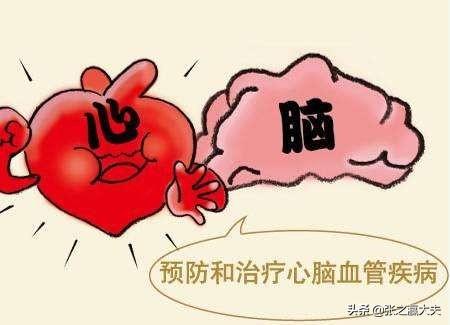
All in all, on this behavior of drinking tea for high blood pressure, it should be said that drinking tea is still a good, health-friendly behavior. As for green tea and black tea, maybe the research nowadays still tends to favor green tea a little bit more healthier. I hope my answer today can help you.

Tea is the second most consumed beverage in the world after water, and because of this high intake worldwide, even if tea has a small impact on our personal health, it can have a significant impact on the public health of people all over the world. Indeed, in our real life, we can't live without tea, whether we are entertaining friends and family or drinking it ourselves.
To this day, tea has been passed down from generation to generation in different social environments and offers certain benefits to our health. However, different types of tea offer different health benefits. Therefore, if we want to choose the right tea for us, then we must understand the differences between different types of tea, for example, which one is more suitable for those with high blood pressure, black tea or green tea?
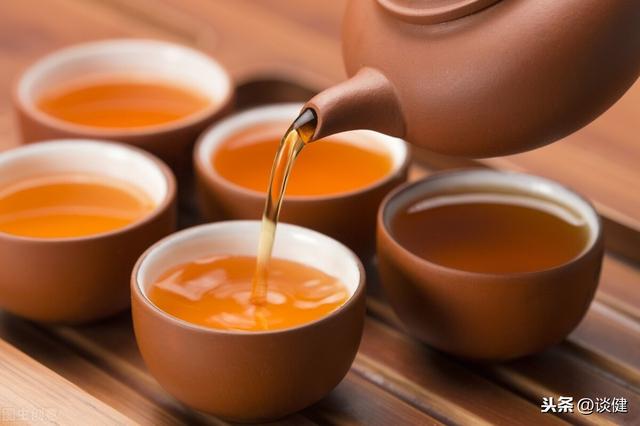
What are some of the ways in which black tea differs from green tea?
First of all, both black tea and green tea are made from the leaves of the tea tree. Generally speaking, there are three types of tea that we come across most around us, namely: green tea, black tea and oolong tea. Although they are all called "tea", they are very different from each other. The difference between them depends mainly on how the tea leaves are processed. For example, partially fermented leaves produce oolong tea; fermented leaves produce black tea; and unfermented leaves produce green tea.
Secondly, whether fermented black tea or unfermented green tea, the main flavonoids they contain are flavanols, such as epigallocatechin, epigallocatechin gallate, epigallocatechin gallate and epicatechin. Although the total flavonoid content in green tea and black tea is similar, they have different chemical structures. In fact, this is largely attributed to the oxidation process used in black tea production, which converts flavonoids (such as catechins in green tea) into more complex varieties such as theaflavins and theaflavins.
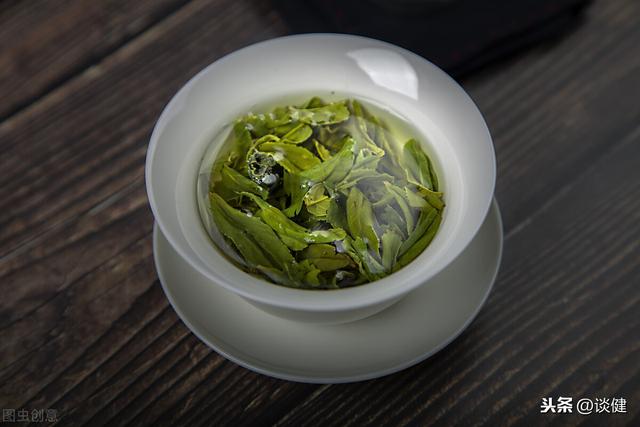
In green tea, catechins make up about 80 to 90 percent of the total flavonoids, while in black tea, catechins make up 20 to 30 percent of the total flavonoids. In other words, green tea contains more catechins than black tea. Catechins are strong antioxidants in our body and outside of it. In addition, green tea is an unfermented tea, which can be simply understood as a natural tea. It is produced from the freshly picked leaves of the tea tree and has a high vitamin and mineral content, which, when consumed in a certain amount every day, can provide 5% to 10% of a person's daily requirement of riboflavin, niacin, folic acid and pantothenic acid.
Finally, there is a difference in the amount of caffeine contained in black tea and green tea. Although the actual amount of caffeine varies depending on the source, processing, and preparation method of the tea, green tea naturally contains about 25mg of caffeine per cup, which is about one-third less than the caffeine contained in black tea. The caffeine content of black tea increases with steeping time.
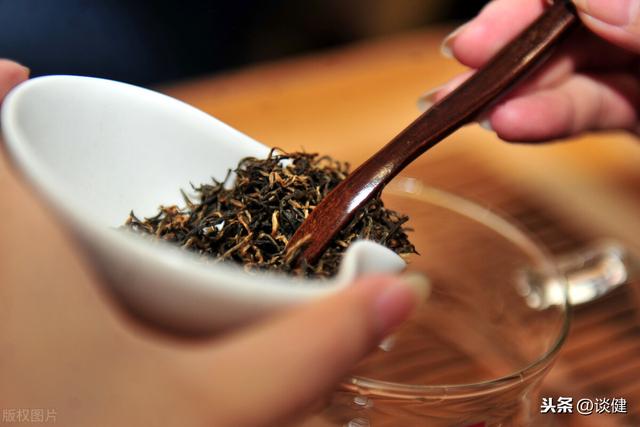
Black tea or green tea, which is better for people with high blood pressure?
In the above article, I have described in detail the simple differences between green tea and black tea, and I am sure that you will be able to see some of the facts that green tea is clearly the best choice for us hypertensive patients compared to black tea. In fact, according to a meta-analysis of several observational studies:
A cup of green tea a day is associated with a 10 percent lower risk of coronary artery disease.
In addition, recent meta-analyses have found:
Consumption of green tea improves control of systolic and diastolic blood pressure. The beneficial effects were especially significant in subjects with stage 1 hypertension or prehypertension.
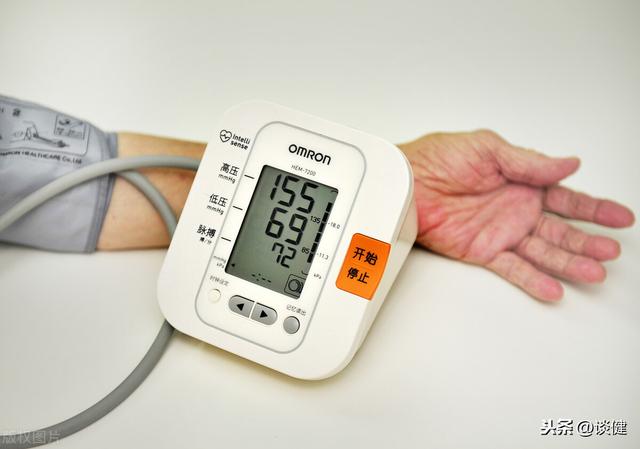
Indeed, the mechanisms underlying the beneficial effects of green tea on blood pressure control are multiple. First, green tea extract may maintain vasodilation by balancing vasoconstrictive substances, such as including angiotensin II, prostaglandins, and endothelin, or vasodilatory substances, such as prostacyclin and various endothelium-derived hyperpolarizing factors.
Second, green tea can improve ventricular function and exert beneficial effects by increasing nitric oxide production by endothelial cells in a PI3 kinase-dependent pathway. Finally, green tea is able to reduce oxidative stress by inducing antioxidant enzymes. In addition, green tea catechins induce anti-inflammatory effects through the inhibition of several inflammatory factors such as cytokines, adhesion molecules and nuclear factors.

Although the intake of green tea has the ability to improve blood pressure, high doses of green tea intake may contain high levels of caffeine, which can lead to an increase in blood pressure. From this point of view, prolonged intake of green tea in large quantities is detrimental to blood pressure control. In addition, when we are recognized as high blood pressure, do not completely hope on green tea, more is to follow the doctor's advice, learn to medication control as the main, life control as a supplement.
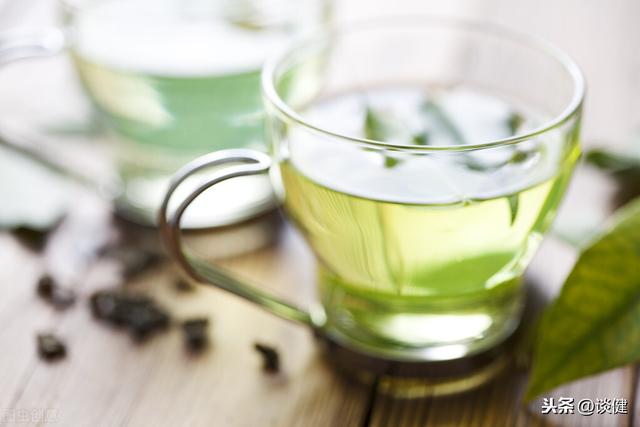
What should we pay attention to in the process of drinking green tea?
Consuming green tea in moderation offers many health benefits. However, studies have shown that higher doses may cause a number of known and unknown adverse effects. Since green tea contains caffeine, catechins and tannins, drinking large amounts of tea may cause neural tube birth defects in infants due to folate antagonism. This is why pregnant women should be cautious about drinking tea and are advised to consume no more than 1 cup.
When consumed as a beverage, green tea is considered safe when used in moderation. However, the concern is that green tea supplements containing large amounts of epigallocatechin gallate (EGCG) may cause liver damage, especially above 800 mg per day. In our daily lives, each cup of brewed green tea contains 50-100mg of EGCG, so to be safe, we should consume less than 8 cups of green tea.
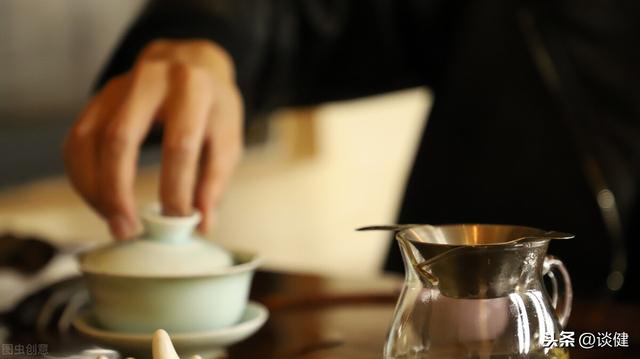
In addition to caffeine-free green tea products, green tea also contains high levels of caffeine and too much caffeine. The caffeine content is stimulating and may cause adverse health effects in some people. In fact, excessive intake of caffeine can make a person feel restless and shaky, which can disturb our sleep and cause headaches. In addition, green tea should not be consumed by those who suffer from heart disease or severe cardiovascular disease.
Several studies have shown that the tea tree has the ability to accumulate high levels of aluminum. This aspect is very important for those with kidney failure, as aluminum can build up in the body, which can lead to neurological disorders. Therefore, it is necessary to control the intake of this metal. At the same time, green tea catechins may have an affinity for iron, and green tea intake can lead to a significant decrease in the bioavailability of iron in the diet, which can lead to iron deficiency anemia.
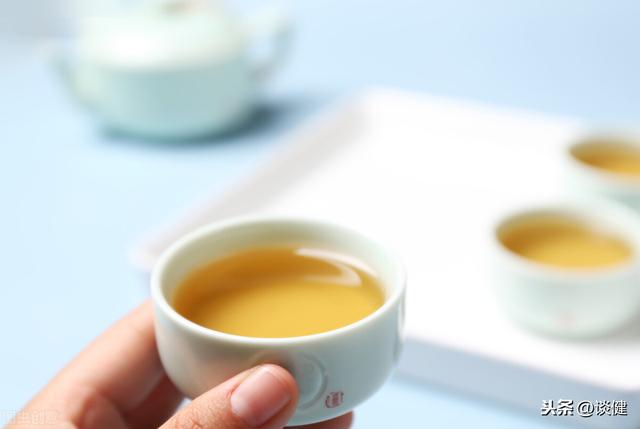
To summarize, tea drinking belongs to a good habit, whether or not you have high blood pressure, or you are normal and healthy. However, drinking tea has both advantages and disadvantages for our health, and each of us should be able to see both sides of them, so as to discard the harmful side of green tea and maximize the benefits of green tea for us. The biggest principle to maximize the benefits is not to drink too much, but to do so in moderation.

Conclusion:
For many of us, drinking tea is a calm, peaceful part of our day. Even if the tea itself doesn't have any health benefits, taking some time to simply brew a cup of tea and enjoying every sip can bring a sense of peace and wellness. Perhaps it's also quite possible that there is also medicinal value in our teacups, as many types of tea have a long history of health benefits. However, since there is little hard evidence to support the true health benefits of tea, it is not wise to rely solely on tea to treat, prevent or manage disease. If we are managing high blood pressure, it is imperative that we work with our primary care physician to develop a sensible and correct program that is the wisest way to control our blood pressure.
Hello, I am an internist who has been practicing for many years. As early as 3000 years ago, Shennong's discovered that tea has the function of detoxification, and since then tea and human health have been inseparable. Tea, which originated in China and is prevalent in the world, is the health drink of the 21st century. So in the most common varieties of tea is "green tea and black tea", which is more suitable for people with high blood pressure to drink? As a clinician, I will talk about my opinion below.
A brief introduction to tea
Tea is loved by people all over the world, but to put it bluntly, both green tea and black tea are made from the leaves of the tea tree. The key difference between the two, however, is that black tea is fermented, while green tea is not. When making black tea, the leaves are first twisted and then exposed to air to ferment. This reaction causes the leaves to turn dark brown and gives the tea a stronger flavor. On the other hand, sautéing green tea in a pan prevents it from fermenting, so green tea is much lighter in color than black tea.
● Although green tea is different from black tea, they may offer some of the same health benefits. That's because studies have found that both green and black teas are rich in a type of polyphenol protective antioxidant. More specifically, they both contain a polyphenol called a "flavonoid". Therefore, it is also said that the flavonoids in green tea and black tea can protect the heart. Both green tea and black tea also contain a known stimulant called caffeine. Green tea contains less caffeine than black tea, with an 8 ounce (230 ml) cup of green tea containing about 35 mg of caffeine, while the same cup of black tea contains 39-109 mg of caffeine.
● Research has shown that caffeine stimulates the nervous system by blocking the inhibitory neurotransmitter adenosine, and it also helps release mood-enhancing neurotransmitters such as dopamine and serotonin. Green tea also contains "EGCG (a green tea extract)", an antioxidant that has been shown in test tube and animal studies to fight cancer and bacterial cells to a certain extent, and protect the brain and liver. Black tea, on the other hand, contains beneficial theaflavins, a polyphenol that is unique to black tea. Through their antioxidant action, they improve blood vessel function. So green tea and black tea have similar health benefits for the heart and brain to some extent. Their antioxidant properties differ, and although green tea may contain stronger antioxidants, there is no scientific evidence that one tea is far superior to the other.
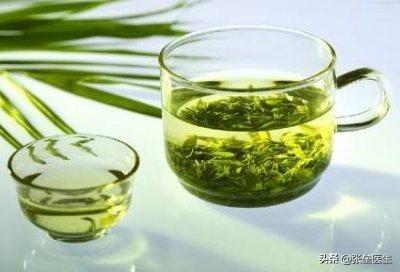
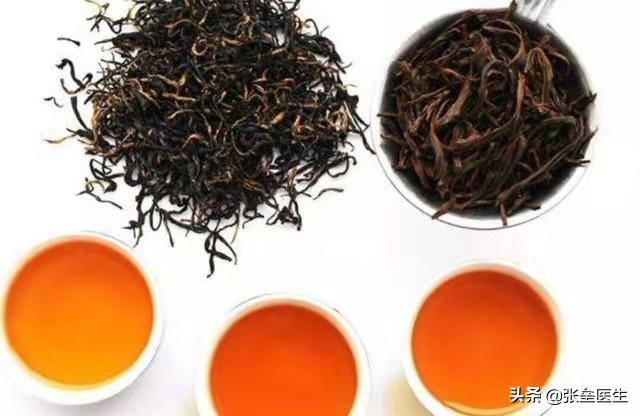
Introduction to factors associated with the development of hypertension
The etiology of essential hypertension is multifactorial, especially the result of the interaction between genetic and environmental factors, but it is not clear through which pathway genetic and environmental factors increase hypertension. In terms of genetic factors, it has obvious familial aggregation, both parents have hypertension, the probability of children's disease is as high as 46%, about 60% of hypertensive patients have a family history of hypertension.
● In terms of environmental factors, there are three main points related to hypertension. One is diet, because high sodium, low potassium diet is the main risk factor for the development of most hypertensive patients in China, most of China's per capita daily salt intake of 12-15g or more, which is several times higher than the western population, a large sample of research studies also show that sodium intake and the prevalence of hypertension is positively correlated; the second is the mental stress, the prevalence of hypertension in urban mental workers than manual workers, engaged in occupations with high mental stress, the possibility of hypertension is greater, why we often say that people live "mind", "mind", "mind", "mind", "mind", "mind", "mind", "mind" and "mind". The prevalence of hypertension among urban mental workers exceeds that of manual laborers, and those who are engaged in occupations with high levels of mental tension have a higher likelihood of hypertension. Why do we often say that the "state of mind" is very important to people living, in fact, that is the case, in addition, people's desires are also endless, so living in the present, relaxed and at ease is the most important thing.
● Other aspects, many people hear that smoking is most closely associated with lung cancer, in fact, people's ideas are too limited. Smoking can also cause chronic bronchitis, chronic obstructive pulmonary disease and various cardiovascular diseases, because smoking can make our sympathetic nerve endings release norepinephrine increase and make the blood pressure rise, but also through oxidative stress to impair nitric oxide-mediated vasodilatation, resulting in elevated blood pressure; such as weight gain, oral contraceptives, sleep apnea and hypoventilation syndrome are all related to the onset of high blood pressure. The increase in weight, oral contraceptives, and sleep apnea hypoventilation syndrome are all related to the development of hypertension.
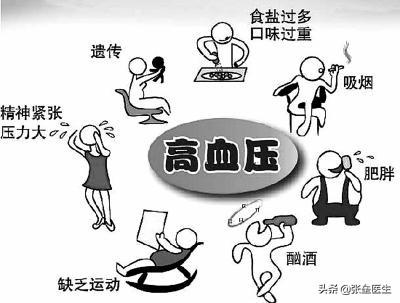
Green tea or black tea, which is better for people with high blood pressure?
In fact, to put it bluntly, the questioner wants to know what kind of tea is good for blood pressure control in hypertensive patients? Although I have talked about some of the benefits of drinking tea in the opening paragraph, but at best it is only a "supporting role", do not put the cart before the horse! In traditional medicine, tea can be used as medicine, but in the modern medical point of view, tea can not play a role in the treatment of hypertension, hypertension control, this point I hope you understand. So I personally believe that if you are hypertensive, from a scientific point of view, you drink black tea or green tea or white tea, are not drinking who is better, drink who is more conducive to blood pressure control evidence.
● Indeed, excess sodium will lead to elevated blood pressure, so the elimination of sodium needs to be accelerated. Just on this basis, some people say that drinking tea is good for promoting the elimination of more than sodium from the body, but this is actually playing a trick on the eyes. I tell people that you actually drink plain water as well, so it has nothing to do with tea. In the prevention and treatment of hypertension, I give comprehensive advice is that once you have high blood pressure that should take drugs or have to eat, some people say eat a lifetime have to eat, this is "poison", wrong! This is because your disease needs, you can choose not to eat, but your high blood pressure will become more and more serious, and even a variety of complications. The second is a low-salt, low-fat diet, improve lifestyle, active weight control, strengthen physical exercise, change bad habits, actively quit smoking and drinking is the right way to prevent and treat hypertension, without having to listen to some of the Internet gossip and a variety of fabricated so-called tips!

Author's Message:This response does not constitute medical treatment advice or medical guidance and is intended for health science purposes only. This article does not join the column, gratuitous, free for everyone to read. May it be helpful to those who are misled by rumors, no medical knowledge, health care concepts of the group. Headline is an open platform, everyone can learn from each other, discuss with each other, if there are different points of view can be comment area to talk about their own views. If you feel that you have learned to help, do not be stingy, offer a love, point a praise, forward to help more people, thanks for the support.
Hello, I am Dr. Wang cardiovascular, almost every day there will be friends with high blood pressure ask similar questions: drink which kind of tea can lower blood pressure? What kind of tea should I not drink if I have high blood pressure? Is black tea or green tea better?
The answer is told today with a few real cases and some relevant research data.
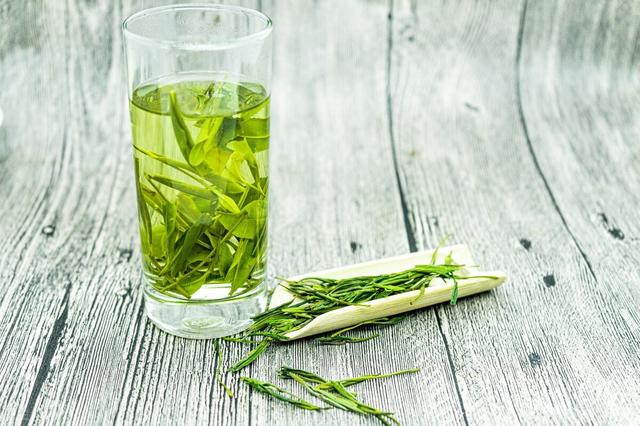
I have a good friend are 10 years, the first of May went to foreign travel, the local tour guide said the local health tea, can lower three high, can prevent cardiovascular and cerebrovascular diseases. Local people drink this health tea every day, no one in the local three high, and no one is cardiovascular disease. So my good friend spent thousands of dollars to buy several large bags of health tea.
After returning, stopped using antihypertensive drugs, insisted on drinking health tea, drank 1 month blood pressure from the original take antihypertensive drugs when 130/80 rose to 170/100; then called me to ask why this tea does not lower blood pressure?
I said: no doctor has ever told you that tea lowers blood pressure, right?
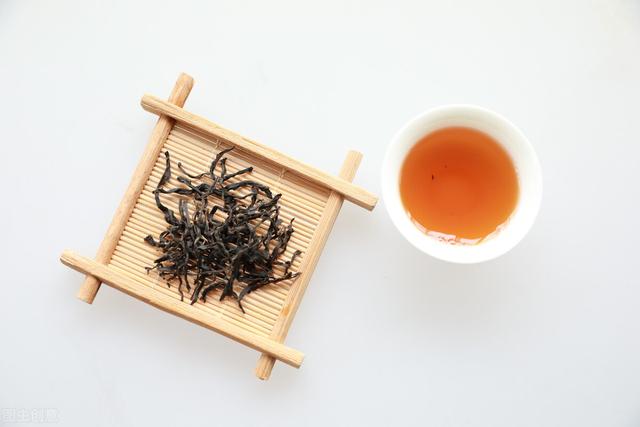
He said no, but why wouldn't the locals get high blood pressure if they drank it?
I said: What makes you say that the locals do not have high blood pressure, just based on the guide's words? Even if what the guide said is true, the local did not have high blood pressure, that is not related to the local eating habits, air and water quality, living habits, etc.? What is the basis for saying that is drinking this so-called tea is not three high?
My friend half-believe, the key spent thousands of dollars, really do not want to waste, so while eating antihypertensive drugs, while drinking health tea. Another past three months, health care tea finished, currently eating antihypertensive drugs and away from exactly the same, blood pressure is also exactly the same as the original, and not because of drinking this health care tea, blood pressure has been further improved.
There are no studies confirming that drinking tea can lower blood pressure, nor are there any supplements or health teas that can lower blood pressure, and there are no guidelines that explicitly state that drinking tea can lower blood pressure.
So any expectation that drinking tea will lower your blood pressure is whimsical and foolhardy.
So can you still drink tea if you have high blood pressure?
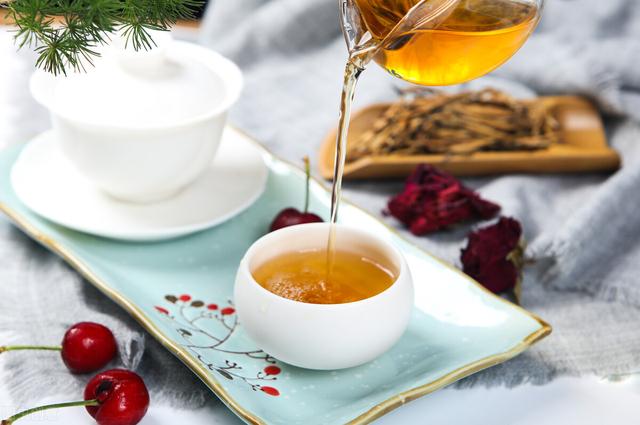
At present, there is no observation that drinking tea will raise blood pressure, that is to say, if you have high blood pressure, if you want to drink tea, continue to drink, do not do to force. Not that you can't drink tea if you have high blood pressure, drinking tea affects blood pressure and other studies.
But here are a couple of reminders:
If you feel uncomfortable after drinking tea, especially strong tea, or even experience panic, irritability, insomnia, etc., especially if it interferes with your sleep, then drinking tea is not recommended. Although drinking tea itself does not affect blood pressure, but after drinking tea panic, insomnia, blood pressure will rise, so anyone who is uncomfortable after drinking tea, it is not recommended to drink tea.
Furthermore, some people may ask whether drinking tea will affect the antihypertensive effect of antihypertensive drugs, there is no research result in this regard, but from modern medicine, even if the tea delivery of antihypertensive drugs, it will not lead to a direct reduction in the effect of antihypertensive drugs. Of course, we still encourage the use of plain water delivery of antihypertensive drugs, as a last resort, the occasional use of tea delivery of antihypertensive drugs, there is no great harm.
Studies on tea drinking and high blood pressure:
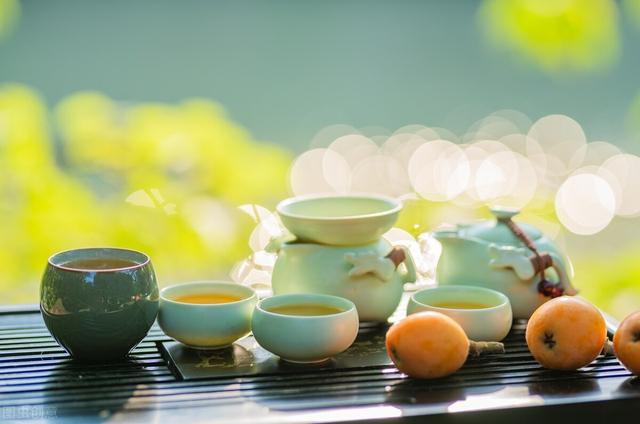
Followed up for six years at Fu Wai Hospital, the study found that people who drank tea consistently had a 14 percent lower risk of high blood pressure than those who never drank tea, and this study tells us that drinking tea may prevent high blood pressure.
A previous study published in the Journal of the American Heart Association showed that people who consistently drank tea over a long period of time had slower declines in HDL levels and an 8 percent reduction in cardiovascular risk.
This is the latest research on tea drinking and hypertension, hyperlipidemia, and cardiovascular disease. Of course, research is still research and cannot be used as a guide. Still, if you are used to drinking tea, then drink it, if you don't like it, then don't drink it, no need to force it.
There are not only black and green teas, but also white, black, oolong, jasmine, instant, and other teas, etc.; there is no clear-cut definition of which tea is necessarily better. Or the above-mentioned Journal of the American Heart Association study, suggesting that green tea for high-density lipoprotein cholesterol, that is, high blood fat has the greatest impact, that is to say, green tea may be more conducive to lipid metabolism, cardiovascular protection. Overall, it's better to choose your favorite tea based on your personal habits and local conditions.
Finally, we should especially remind that it is not recommended to drink milk tea regularly, because milk tea contains trans fatty acids, which will raise LDL cholesterol, can lead to hyperlipidemia and increase the risk of cardiovascular disease.
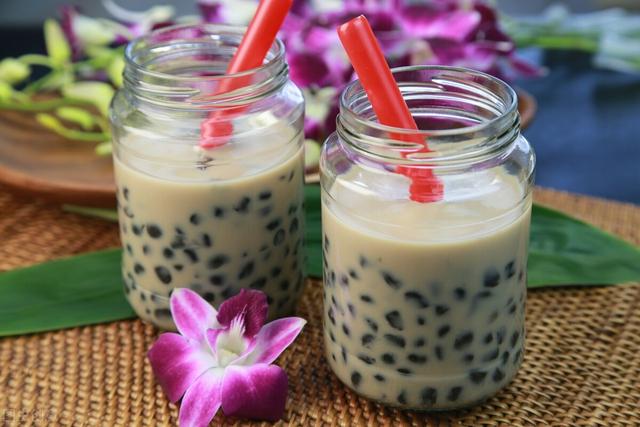
In short, drinking tea is more of a mood, is a state of mind, drinking tea can cultivate the body, of course, is conducive to good health, drinking tea to a certain extent can prevent disease, but drinking tea can not be a direct treatment of disease.
When you have high blood pressure, you can drink black tea if you want and green tea if you want.
I am proud to tell you that tea as our national treasure does have the effect of lowering blood pressure. So, is it better for hypertensive patients to drink green tea or black tea? Let's first take a look at how green tea is different from black tea.
1. Green tea is non-fermented tea, black tea is fermented tea, the two components are not the same.
China's tea culture throughout the five thousand years of Chinese history, a long history, the development of a number of varieties, black tea and green tea may be the most familiar varieties, a mild and mellow, soup color red; a fresh fragrance and freshness, soup color green, these two kinds of tea, everyone carrots, each to his own. But from the perspective of high blood control, the two components are different, the effect is not the same. We understand in detail.
There are many ways to classify tea in China, according to the tea processing method can be divided into gross tea and refined tea; according to the tea picking season can be divided into spring tea, summer tea, autumn tea and winter tea, according to the degree of fermentation is divided into non-fermented tea, such as green tea, semi-fermented tea, such as white tea, full-fermented tea, such as black tea, and post-fermented tea, such as black tea. Related to the prevention and treatment of hypertension is the degree of fermentation of tea, and the composition differs between them.
Green tea is unfermented tea, and the representative of our tea drink is green tea. Green tea is made from unfumigated and unoxidized leaves, which are evaporated or heated immediately after picking to destroy the enzymes that cause oxidation, thePolyphenols in fresh leaves are retained, theKeep the color green, and then dried and stored, compared with black tea, green tea processing at least, so that the beneficial components of the tea to maximize the retention of the tea polyphenols, caffeine, chlorophyll, catechins, vitamins, minerals and other active ingredients are almost not lost, but also contains more tannins and phytic acid.
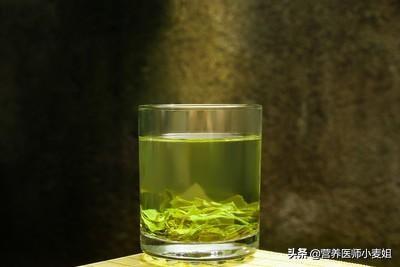
Black tea is a fermented tea, fresh tea leaves are picked and made through the process of shriveling, kneading, fermentation and drying. Among them, the most crucial process is fermentation, which is the process of oxidizing polyphenols.Polyphenols are destroyed to varying degrees during oxidation.
After fermentation of tea, tannic acid and phytic acid are reduced, the bitter and astringent flavor is reduced, and more theobromine, theaflavin, amino acids and B vitamins and other components are produced.
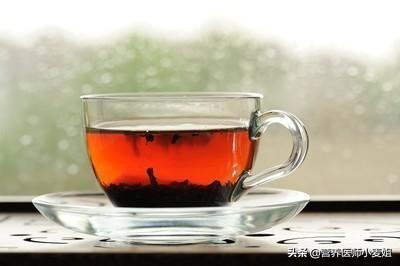
2. Tea has a variety of beneficial health components, which play a role in combating hypertension is the role of tea polyphenols, high blood pressure patients are best to drink green tea.
Tea polyphenols can protect the elasticity of blood vessels, prevention and treatment of high blood pressure, high blood fat, high blood sugar and other "three highs", reduce the incidence of heart attack, cerebral infarction. From a foreign study found that daily consumption of green tea 500 milliliters or more, the risk of cerebrovascular death decreased by 25%, the incidence of cerebral infarction decreased by 50%.
One of the most authoritative studies in our country came from a team of academicians from the Chinese Academy of Medical Sciences, Gu Dongfeng, who found in an observational study lasting eight years that a person who drank green tea three times a week could reduce atherosclerotic cardiovascular disease and all-cause mortality. At age 50, habitual tea drinkers were 1.41 years later in developing atherosclerotic cardiovascular disease and had a 1.26 year increase in life expectancy compared to those who never or rarely drank tea, which is a very promising result.
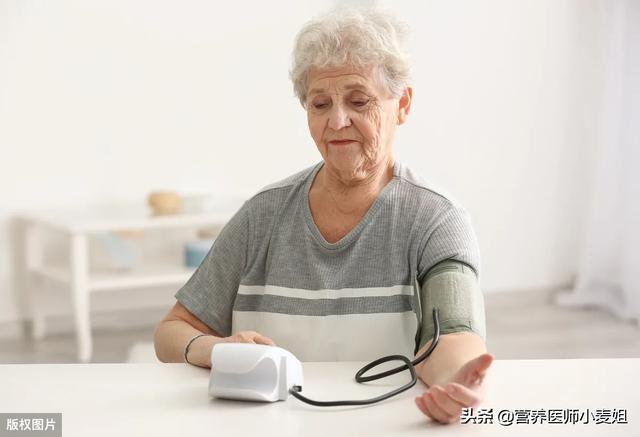
3. Precautions for hypertensive patients drinking green tea.
Choose to drink green tea after a meal if you have a weak spleen or stomach.Chinese medicine on green tea cold, modern medicine confirmed that green tea contains more tannins and phytic acid, the gastrointestinal tract stimulation, gastrointestinal function is not good people, drinking green tea on an empty stomach may be gastrointestinal discomfort, or even abdominal pain, it is recommended to drink after meals. If you drink black tea on an empty stomach.
Sensitive people should not drink green tea before bedtime.Green tea contains a certain amount of caffeine, easy to cause sympathetic excitation, caffeine-sensitive people drink tea before bedtime to cause insomnia. I myself is this kind of person, never dare to drink tea at night.
Do not take blood tonic with tea.The tannins in tea will affect the absorption of iron ions, most of the blood tonic contains iron, people who are taking blood tonic can not be served with tea, so as not to affect the effectiveness of the drug.
Finally, to remind the patients, green tea, although there is a certain prevention and treatment of lower blood pressure, but the effect is limited, can not replace the role of drugs, only as a daily health care drink to use.
Hypertension is known as one of the five modern diseases of civilization, is no longer the middle-aged and elderly "patent", some young people, and even minors will also suffer from "hypertension". The culprit is that with people's daily work, study, the pace of life continues to accelerate, many people live more and more irregular work and rest, alcoholism, smoking, nervousness, sedentary, less mobile, eat too salty, or eat too much, excessive obesity ...... long term, it will be very easy to suffer from high blood pressure.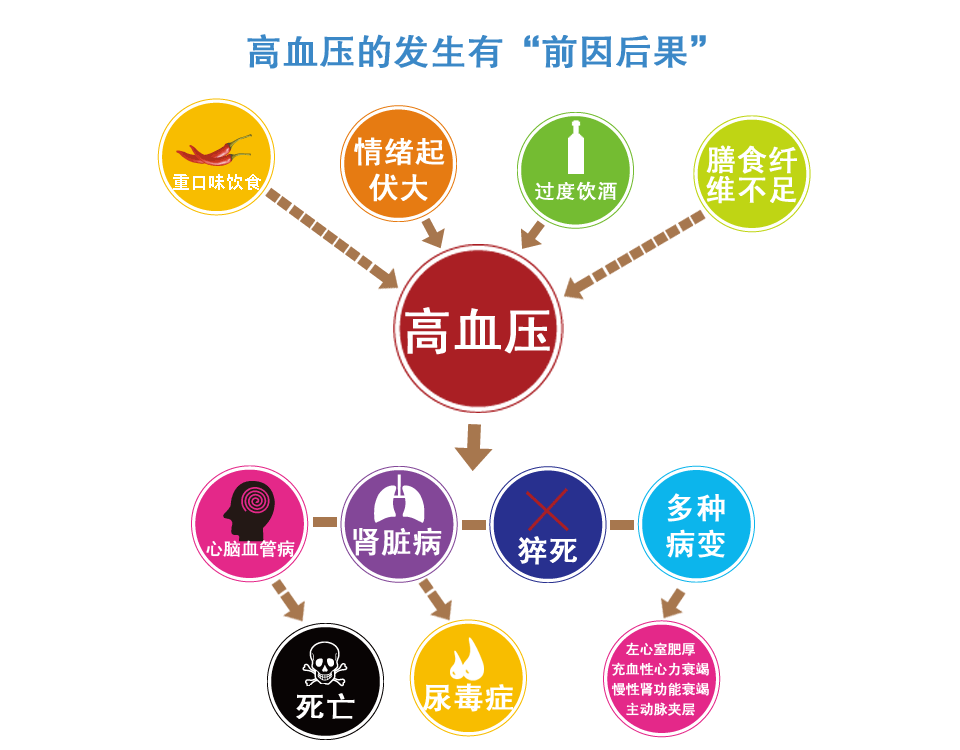
A brief understanding of the causes of hypertension is the most basic background knowledge we need to answer this question. In fact, this question can be broken down into two sub-questions:
One of them is whether people with high blood pressure can drink tea or not.
The second is that if you can drink tea, then how should people with high blood pressure drink tea to be the most healthy, and not just drink green tea is good, or drink black tea is good.
Let's start by answering the first question.
Tea is a national treasure and a natural healthy drink, and for anyone who values their health, drinking tea is one of the best choices.
Fujian Medical University has conducted a big data study on the relationship between tea drinking and high blood pressure, through the collection of more than 5,000 people in the age range of 30-60 years of age survey information, the results found that the chances of frequent tea drinkers suffering from high blood pressure than infrequent tea drinkers more than one times less.
As you can see, drinking tea regularly still has a preventive effect on high blood pressure.
Modern biological science research, indicating that this is due to the tea contains catechins, folic acid, tea polyphenols, various proteins, amino acids, minerals, vitamins and other types of nutrients in the integrated role. Tea's medicinal value and health effects are derived from its content of these substances.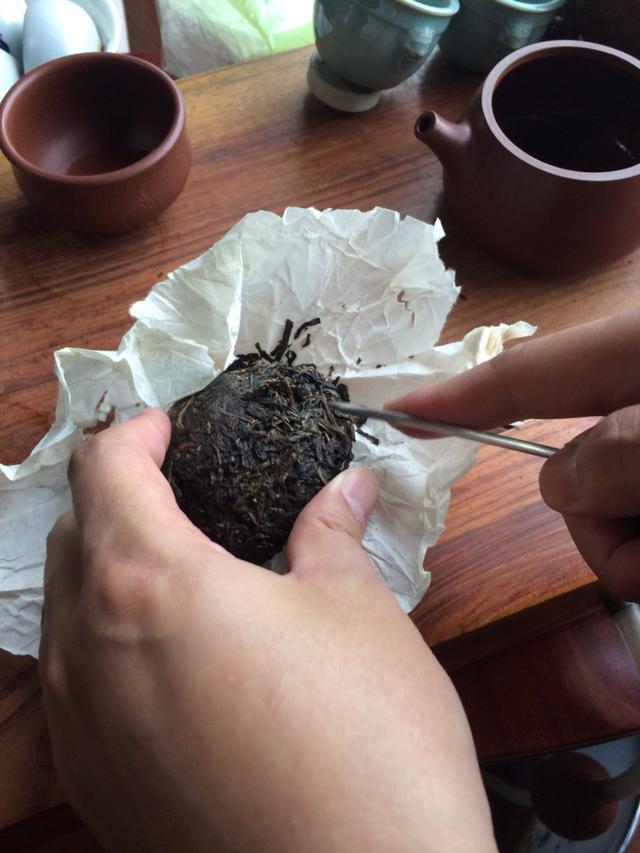
If there are no innate contraindications, then there is no doubt that all six of our major teas, strictly speaking, are fine for people with high blood pressure.
The question is how it should be drunk to be considered the healthiest. This is the second issue that needs to be addressed.
Here should follow a principle: should not be too much, nor too strong. No matter what kind of tea, as long as you drink too much, or drink strong tea, tea contains theophylline and other components, has an excitatory effect, easy to make hypertensive patients' blood pressure rise, but not conducive to the patient's health.
As to whether it is better to drink green tea, or black tea, or even oolong tea, black tea.Yifangjun believes that it should be decided specifically according to the season, personal constitution, taste, preferences and other factors.
We can not force a patient who has long been accustomed to the refreshing natural taste of green tea to suddenly change their mouth to drink oolong tea, otherwise even the best tea, for them, it is tasteless, and produce reverse psychology. This reverse psychology for the patient's condition is extremely unfavorable. The daily protection of hypertension patients focus on maintaining a happy mood.
In addition, for example, when summer comes, the temperature rises dramatically, the heat wave, it should be said that drinking a cup of refreshing green tea should be more comfortable than a cup of rich black tea.
We know that tea is not a panacea, but it is a national good, and drinking it just right can bring unexpected results to everyone's health.
Chinese tea culture has a long history and is very diverse. Many people believe that people with high blood pressure drink some tea for the health benefits, thenBlack tea or green tea, which is better for people with high blood pressure?
Let's learn more about these two teas together.
Green Tea:
Green tea is a kind of tea that does not need to undergo fermentation, and retains 90% of the tea polyphenols during processing; and the antioxidant capacity of green tea is relatively strong; however, green tea is cold, and people with a cold constitution try not to drink too much.
Red Tea:
Black tea is a fully fermented type of tea, in the production process of tea polyphenols reduced by 90%, black tea is milder in nature, winter drinking is more appropriate.
For people with high blood pressure, black and green tea are both preferable as long as you don't drink too much of it.
In general, the average content of tea polyphenols and theanine in green tea is higher than that of black tea, while the average content of caffeine is relatively low, so if analyzed from this perspective, green tea is more suitable for people with high blood pressure to drink.
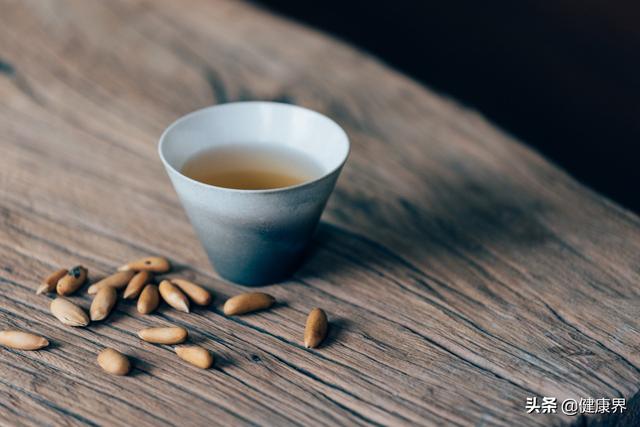
The Health Interface provides healthcare hotspots, policies, perceptions, opinions and interesting popular science content to 13 million healthcare practitioners and the broader health community every day, and looks forward to your every share and interaction.
China's tea culture is profound and has a long history, many people have the habit of drinking tea, for hypertensive patients, can you drink tea? How to drink tea? It has always been a matter of concern for everyone. Our suggestion is thatHigh blood pressure patients if the blood pressure control is stable, is possible to drink tea, whether it is black tea or green tea, or should be based on their own situation to decide, but the general choice is to drink light tea, avoid strong tea, and at the same time before going to bed, fasting and before and after taking medication for one to two hours should not drink tea.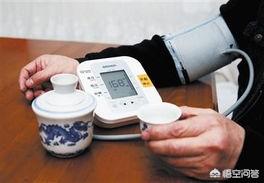
Green tea is unfermented tea, tea polyphenol retention; black tea is fully fermented tea, tea polyphenol loss. Tea polyphenols have a certain stabilizing and lowering blood pressure, from this point of view, green tea should be more suitable for hypertensive patients. But in fact, this point of tea polyphenols for blood pressure reduction effect is very limited, for hypertensive patients, after drinking what effect on blood pressure there are individual differences, and can not be generalized.
Green tea is cold in nature, suitable for drinking in summer, but not suitable for people with poor gastrointestinal function; while black tea is warm in nature, suitable for drinking in winter, it is suitable for patients with gastrointestinal function tea. Therefore, whether hypertensive patients drink black tea or green tea, but also according to their own physical condition and the properties of the spleen and stomach to choose the right tea for them to drink.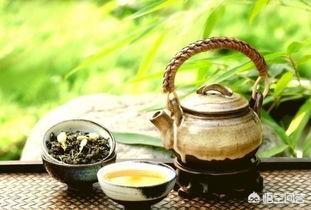
For hypertensive patients, no matter whether to drink tea or not, regular treatment is essential to control blood pressure, we need to improve the lifestyle under the guidance of the doctor, to achieve a low-salt diet, smoking cessation and alcohol restriction, regular work and rest, maintain the mindset and weight control. We also need to choose the right antihypertensive medication according to our own situation, take it regularly and have regular checkups in order to stabilize blood pressure control and reduce complications.
If you have any questions, please feel free to leave a comment at the end of the article to discuss. Follow the author for continuous daily updates on health knowledge.
Green tea is the only unfermented of the six major types of tea. It has the strongest antioxidant ability, while black tea is fully fermented tea with the most comprehensive nutrition. Both have their own dry autumn, drinkers should look at the spleen and stomach properties are cold or warm. Or summer green and fall Wu winter red mode.
This question and answer are from the site users, does not represent the position of the site, such as infringement, please contact the administrator to delete.